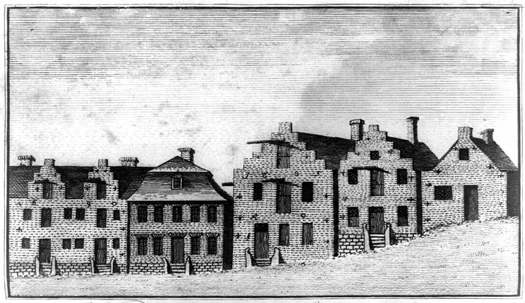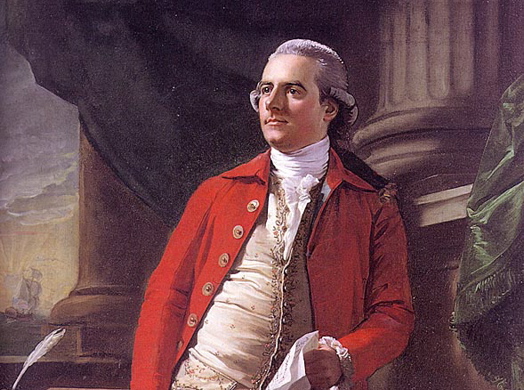Elkanah Watson and the paving of State Street

Albany - Pre Watson
Elkanah Watson was a forward thinker. When he came to Albany from Massachusetts as a trader back in 1789 he had some big plans for making his adopted city a better place to live.
But Elkanah Watson learned very quickly that in Albany, no good deed goes unpunished.
 Among Elkanah Watson's first impressions of Albany were:
Among Elkanah Watson's first impressions of Albany were:
"No street was paved, no lamps, no library; not a public house of any decency; and water-spouts, projecting from the eaves of the houses, deluged unwary night travelers sunk in mud and darkness."
According to Howell's Bi-Centennial History of the County of Albany, State Street was then "not only without pavements and ungraded, but in many places broken, and some parts even precipitous, while the slightest rain upon its clayey soil rendered traveling most unpleasant and difficult."
In spite of the conditions, Watson settled in Albany and quickly became a prominent businessman. An early advocate of canals, he accompanied General Philip Schuyler on an expedition west of Schenectady that led to the creation of the Western Inland Lock Navigation Company, an early attempt at canal-building that set the stage for the Erie Canal. Watson was clearly interested in making civic improvements in his new city, but the old Dutch of Albany, who still spoke their ancestral language in the years of the revolution, were no fans of civic improvements. They also didn't care for outsiders.
Watson and some other city fathers felt Albany would be much improved if its main street were passable in wet weather, and arranged for it to be paved with cut granite stones. This raised the street above the sidewalk (then either dirt or board), and led to stormwater running off into the cellars of homes along the street.
If Watson was expecting appreciation for the grand new street, he must have been disappointed:
"Just after State street had been paved at a heavy expense, I sauntered into it immediately succeeding a heavy thunderstorm, and whilst regretting the disturbance in the sidewalk, and to observe the cellars filled with water, I heard two women, in the act of clearing their invaded premises from the accumulation of mud and water, cry out, 'Here comes that infernal paving Yankee!' They approached me in a menacing attitude, broomsticks erect. Prudence dictated a retreat to avoid being broomsticked by the infuriated Amazons, although I did not run as some of my friends insisted, but walked off at a quick pace."
Howell reported that in subsequent years, provincial minds came to appreciate Watson's drive to improve the city. And Watson remained a huge fan of Albany's potential: "It appears to my mind that Albany is one of the most favorable positions in America for the future enjoyment of a vast internal commerce."
Say Something!
We'd really like you to take part in the conversation here at All Over Albany. But we do have a few rules here. Don't worry, they're easy. The first: be kind. The second: treat everyone else with the same respect you'd like to see in return. Cool? Great, post away. Comments are moderated so it might take a little while for your comment to show up. Thanks for being patient.
Comments
Thoroughly enjoyed reading this post and taking the trip back in time down State St. in Albany. I wonder what ol' Elkanah would think of downtown Albany these days.
Flooded basements still a timely topic, particularly in the SUNY admin building on Broadway.
... said Terry on Oct 26, 2010 at 12:06 PM | link
This article makes me want to run out and name something Elkanah.
... said B on Oct 26, 2010 at 1:30 PM | link
@B -- I nearly named my daughter Araminta for a similar reason.
... said Carl on Oct 26, 2010 at 3:23 PM | link
I love these posts. Thanks guys!
... said Summer on Oct 26, 2010 at 3:35 PM | link
@B -- I nearly named my daughter Araminta for a similar reason.
... said Carl on Oct 26, 2010 at 4:06 PM | link